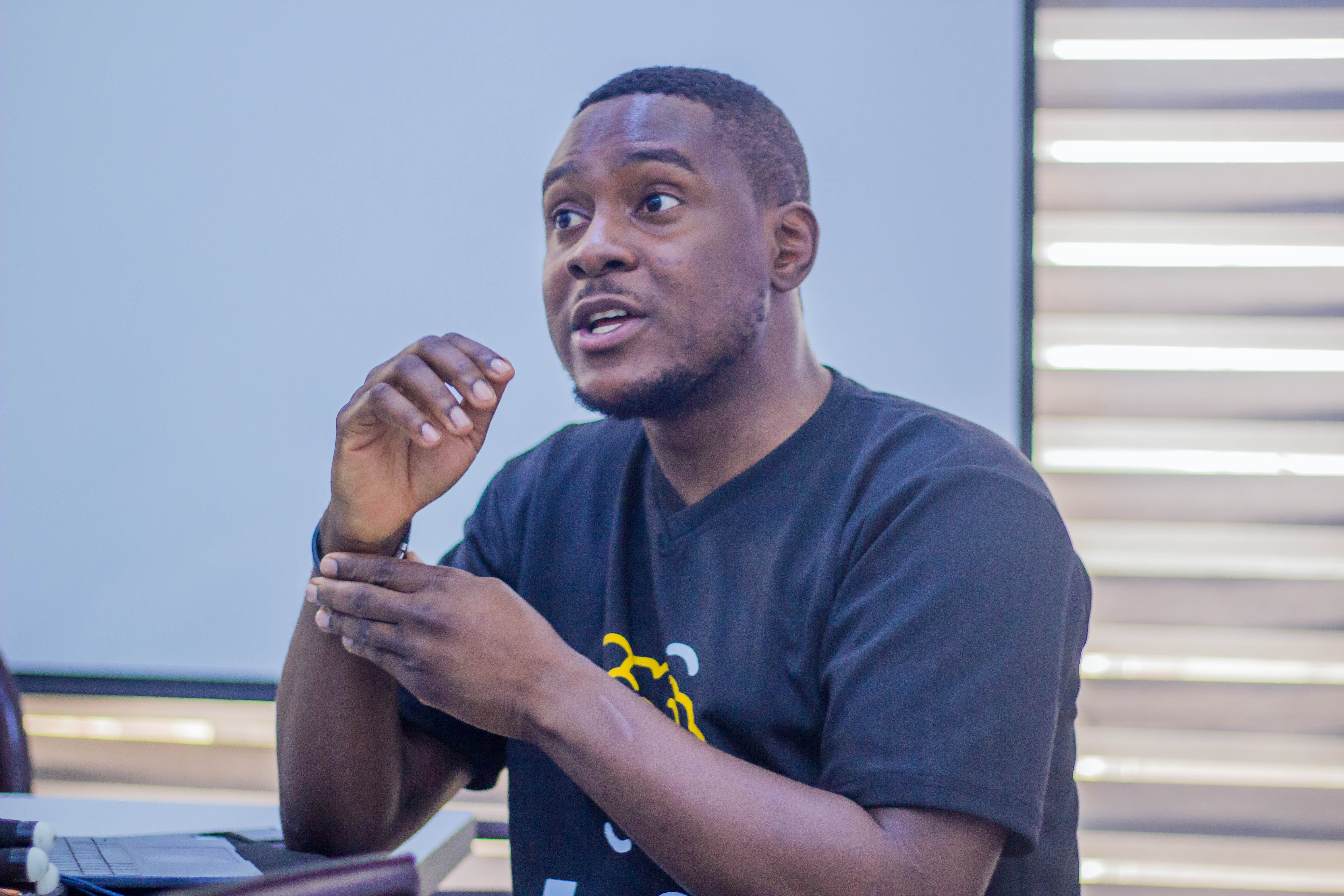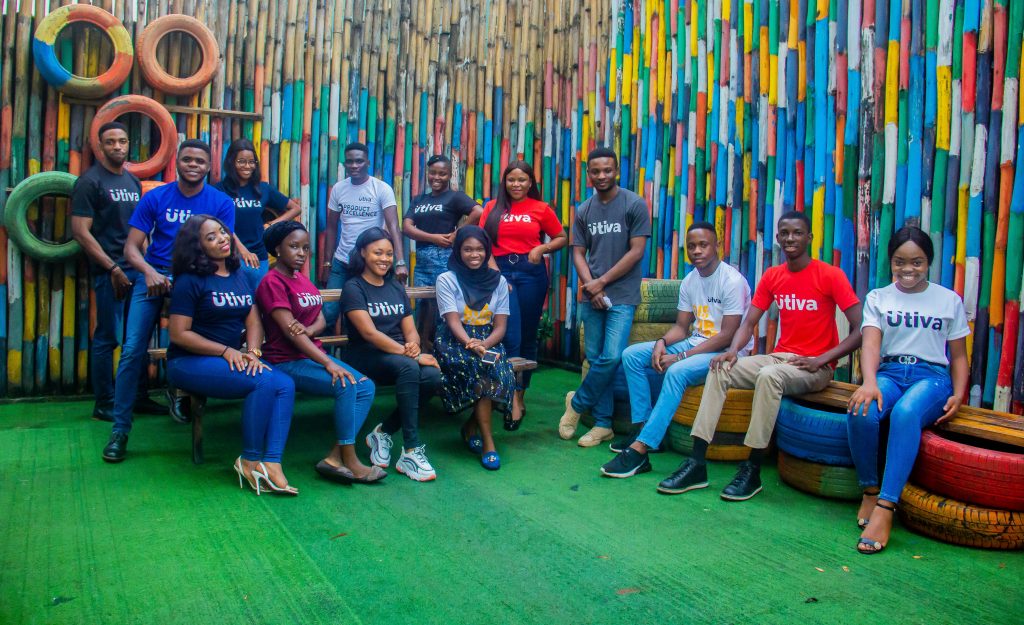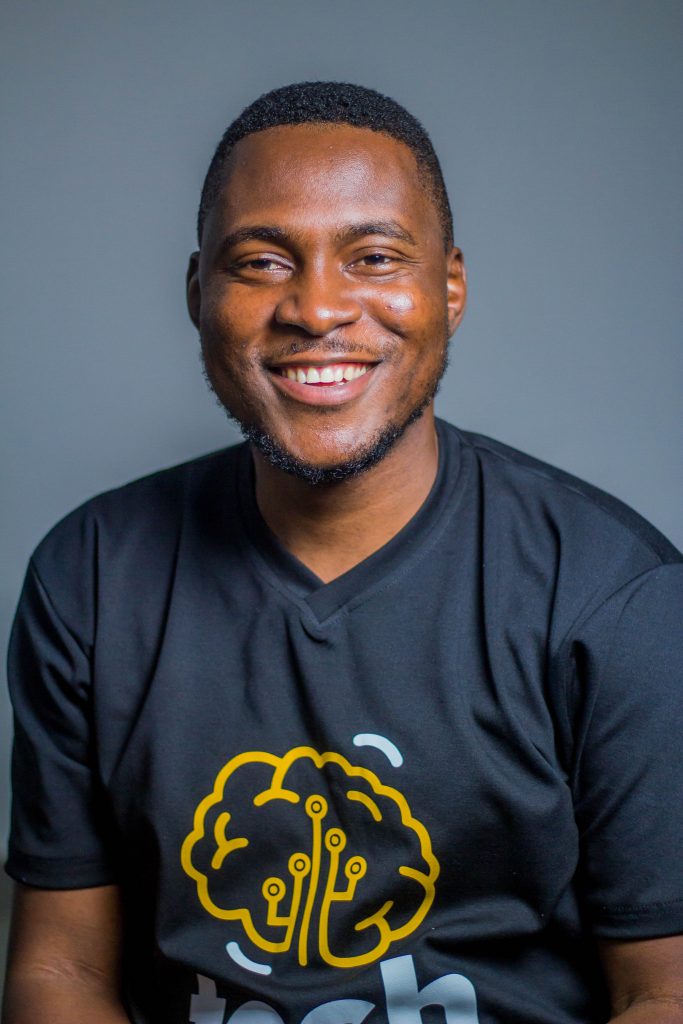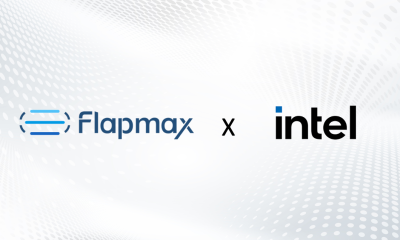Afripreneur
How This EdTech CEO Is Helping Africans Access Premium Tech Skills Relevant For The Future Of Work

Eyitayo Ogunmola is the CEO of Utiva, a leading tech education startup in sub-saharan Africa and a technology education entrepreneur with more than 9 years experience in Product management, international development And technology leadership. In this exclusive interview with Alaba Ayinuola of Business Africa Online, He talked about his entrepreneurship journey, the Utiva brand and how they are helping people transition into roles in the technology industry in Nigeria and Africa. Excerpts.
Alaba: Tell us about Utiva and the role you play?
Eyitayo: Well, Utiva is a one-stop-shop for everything technology education. What we do is help Africans learn premium technology skills and then create paths to helping people transition into roles in the technology industry. If you think about this inform of a mission, I’d say that ours is to help Africans participate in the digital economy and benefit from the value that
digitalization gives to us as a continent.
One of the ways to think about this is to think about the population of the African youths.
According to research, by 2030 Africa will have one of the largest populations of young people that are ready to work in the job market, about 600,000,000 of them. And what we do at Utiva is to lower the barrier to entry and learning for so many young Africans that want to acquire technical skills. And also help them access new jobs.
Within 2 years, we have developed learning programs in some very specific areas of digital skill training. From Product Management to Product design to Data Analytics to Artificial intelligence to Digital Marketing. Our focus is to make the learning programs so interesting and attractive for people to participate. That is pretty much what we do at Utiva.

Now talking about my own role, I am the Chief Executive Officer, so what I do is to lead the team, lead the practice, and to champion the organization’s policy the way the organization is structured. So I typically will report to the board, I am the person that pursues the investors, also the one cheer leading and helping the stakeholders to get attracted to the brand Utiva.
Alaba: What was your startup capital and how were you able to raise it?
Eyitayo: Now the interesting thing about Utiva is that we bootstrapped from the very beginning. We didn’t raise a dime. I pretty much used my own personal savings to run Utiva from day one. And as a social enterprise, I will say that we have benefited so much from impact investing or social impact financing in the form of grants to subsidise our training.
So Utiva has been a bootstrapper from the beginning, we so much believe in bootstrapping to a point before we start using other people’s money to run the organization.
Alaba: What are the challenges, competition and how are you overcoming them?
Eyitayo: Well in terms of competition, I will say that we pretty much do not always see ourselves as competitors in the education space, we love to see ourselves as complementors. But there are other amazing companies and organizations that are playing in our space. There are organizations that are niched and are focused on different areas of technology education training, so I may not be able to mention names here but I will say that there are great organizations that are focused on training in programs. There are organizations that do not do training, they just connect people to the job market, there are organizations that are focused on digital skills training, some are focused on providing internships to people that have been trained.
So what we do which is like the competitive advantage that we have is that we are a one-stop shop for everything technology skill training. From Data to Product to Design to Digital Marketing to Growth Hacking to Artificial Intelligence and this is a value proposition that makes our students get very attracted to Utiva. Because they trust us and the trust is pretty much built around the fact that we have built several digital schools and they know that yes we really know what we are doing.
In terms of the way we also overcome the competition, we built Utiva to be very affordable. We lower the barrier to entry for Africans and we do not believe that you need to break the bank to learn a technology skill and that is one of the areas of the competitive advantages that we have. Another one for us is the post-training values that we offer our students.
We have built 3 different models around our post training value. One is the virtual internship. What this means is that at the end of every training program, you have the opportunity to work on multiple projects in the form of virtual internship. The second one is access to job opportunities. Our students gain access to different job opportunities because we have a large network of employers that are hiring through us. And the third one which I consider to be an awesome value is the fact that we are lowering the barrier to entry for those that really need help, speaking of people with disability. We actually just launched a training program that gives 500 people with disability an opportunity to learn digital skills.
These are some of the many values that we offer that makes people want to be a part of our learning program.
Alaba: How does your organization measure it’s the impact?
Eyitayo: So, there are three major ways of measuring impact for us and we are quite very intentional about the way we measure impact. So think about it this way, we measure impact, first by measuring how we are helping you as a student close the knowledge gap. So from the beginning, we want to know what you know, then at the end of the learning program we want to know what you know. So we see the knowledge gap and how we have been able to close it.
The second way we are measuring impact is how you have been able to take the knowledge from the class to practice and we do that within the 3 months virtual internship, we look at how our students have been studying using multiple analytical strategy to evaluate how our students are working on multiple projects and how they are able to juggle these projects and most importantly how they are able to translate what they have learned from the class environment to the real work environment through that virtual internship.

The third one is what employers are saying about our students, that’s like ultimate value. We currently have a 65% transition rate into new jobs and beyond the transition rate, we also look at how employers are getting satisfied with the quality of talents that are passing through Utiva because it is not enough for you to transition, we also need to know how satisfied these employers are with our students.
So, these are the ways we are measuring impact. How you are transitioning to new jobs and the values that employers are getting from the quality of students that pass through our programs.
Alaba: What is the future for Utiva and what steps are you taking in achieving them?
Eyitayo: I am going to be very brief about the future for Utiva because for us at Utiva, we are still in the execution phase. Our focus today is to deliver quality training for our students. But the future of Utiva is to help other educators become successful. The education space is an amazing space to play in and one of the things that we are doing is that we are helping every other educator to become successful in the future.
Beyond being a company that offers quality training, and helping young Africans transition into new jobs, we also want to help other educators to become better so that we can scale the value for Africans, I mean we can’t do it all, how do we even train 600,000,000 young people alone? So we want to replicate ourselves in other educators. That is the future for us.
Alaba: How is your business contributing to the development of the educational sector in Nigeria and Africa?
Eyitayo: Yes, yes! So let me explain a little bit about that. Our contribution is to replicate ourselves, so the way we think about this is that we want to be successful, we want to build successful models, we want to build a successful learning approach. We want to be successful and we want to help other educators to be successful. We want to help other educators to learn the right andragogy and the right pedagogy to become successful.
For us at Utiva, success is built around how much we are helping other educators in the educational sector to become successful. It is in view of this that we launched a mini project which is like a startup incubator for educators. And right now we have about 10 of them that we are coaching and mentoring and helping to access funding abroad just to scale success and that is the way we are thinking about that.
Alaba: How is the government policy supporting startups and entrepreneurs in Nigeria?
Eyitayo: I would say that there are two ways to think about this right, there are so many government policies out there that are structured around providing support to lots of entrepreneurs in Africa, so I will give you an instance, the creative industry loan. The creative industry loan was a CBN initiative that was built to support Nigerian startups. Let me give you another example, the Vice President launched multiple projects to attract investors and also to make the entrepreneurial ecosystem quite very attractive.
However, the policy is not the challenge, what the real challenge is the access. Because most of these policies that the government put in place are there and also the programmatic intervention that the government put in place are there. Where the problem lies is that most African or most Nigerian entrepreneurs do not have the capacity to access some of these opportunities. You know the CBN interest rate policy supports startups, supports entrepreneurs. They are there, but Nigerian entrepreneurs need to be supported in such a way that when these policies are enacted, the barriers to benefiting from these policies are lowered so that we can access them.
Also, the government needs to create an opportunity to talk to entrepreneurs. Beyond just creating policies here and there, the government needs t o talk to entrepreneurs every time. The more you talk to entrepreneurs, the more you are able to understand what works for them and create structures that can really support them.
Alaba: What advice would you give potential entrepreneurs who intend to start a business or invest in Africa?
Eyitayo: The Advice I would give is to start. Start fast and learn fast. I mean you cannot over-prepare for entrepreneurship in Nigeria because it is a totally different ball game. But start and learn very fast. That is the advice I will give, and I would say that think more global, build a more global product. It’s ok to build products for a Nigerian market, but build a global product so that you can benefit from the global dynamics.
Alaba: How does it feel to be an African entrepreneur?
Eyitayo: I think it’s a mixed feeling. Sometimes you are excited because of the opportunity, because of the market, because there are problems and where there are problems there are opportunities
and that is exciting. Then another one is like as an African entrepreneur, you are fighting too many unnecessary battles. We can really build a successful or a super successful African entrepreneurship ecosystem or build a super successful business landscape for the African market if African entrepreneurs do not always have to fight unnecessary battles.
Like you fight battles with electricity, you fight battles with bad roads, you fight battles with bad employees, taxation. You are fighting multiple battles that the government is supposed to fight for you so that you can focus on your core which is building business.
Alaba: How do you relax and what books do you read?
Eyitayo: I travel a lot. Although COVID-19 has really taken that opportunity away from me, because travelling is my thing. Then I read a lot of books around internal navigation, around leadership. That’s one of the things I have been studying so much. Beyond just the motivational leadership books, I read some core books around internal navigation. So one of the areas of books that I have been exposing myself to is biography. I have been reading the biography of some super successful entrepreneurs and I will recommend that other entrepreneurs also start to study biographies of other super successful entrepreneurs. Thank you!
Also Read Pineapple TV: Delivering Positive Impact And Instilling African Culture – Carl Raccah
P R O F I L E

Eyitayo Ogunmola is a Technology Education Entrepreneur with more than 9 years experience in Product management, international development and technology leadership. He has lived and worked in 4 countries and also led at the VP level of a consulting company.
Eyitayo founded Utiva, a leading technology Education company in Sub-Saharan Africa that helps Africans learn tech skills relevant for the future of work. Prior to Utiva, He worked in the International development sector, working on USAID funded tech projects. And also founded PM Hub, a boutique for product development.
He holds a Masters degree in business strategy, leadership and change from Heriot-Watt University. He is a MIT Solve Entrepreneur, 2020 Facebook Accelerator Leader, Halcyon Incubator Fellow, Global Good Funds Fellow; Chevening Scholar, Atlas Corps Fellow, 2019 Unleash Talent.
In 2019, Eyitayo was nominated for Future Awards Africa 2019 under the Education category and most recently is his nomination for the Tech Times Africa Awards under the CEO category.
Afripreneur
Omar Ngom: Creating an elite group of chefs in Senegal

Omar Ngom is a Senegalese entrepreneur, founder of Sama Chef, the first school that trains chefs in Senegal. Located in the residential district of Mermoz, Sama Chef is an institution that marks a turning point in the training of Senegalese chefs.
Head chef of the restaurant “Séku bi, Il Pappagallo Dakar”, Omar stands out for his innovative approach. He collaborates with renowned international chefs, which allows him to offer unique masterclasses, transcending culinary boundaries. This revolutionary method elevates Senegalese cuisine by fusing it with international influences.
With several years of experience acquired in Italy, Germany, Switzerland and France, including as chef of the famous Italian restaurant “Il Pappagallo Hotel Sekubi”, Omar Ngom took the initiative to create this school of excellence in his native Senegal. His motivation stems from the observation of a growing demand for chefs in the restaurant sector in Senegal.
Sama Chef’s mission is to create an international school of professional training in the culinary and catering sector: the ultimate goal is to create an elite group of chefs, kitchen assistants, waiters, and waiters who are in turn able to pass on the know-how they have acquired.
A shortcoming that he decided to fill by providing a solution in order to prepare Senegal to be established in the gastronomic pantheon. Omar Ngom’s prowess quickly attracted the attention of renowned media outlets such as Le Monde newspaper, Reporter Gourmet, Italian TV channel and other media outlets. By opening this school of excellence, he has not only blazed a new trail for culinary education in Senegal, but he has also erected a pillar for the influence of Senegalese cuisine on a global scale.
Afripreneur
Vanessa Toh: Building Payroll Management System For French Companies

Vanessa Toh, Founder at Payeline (Image: Supplied).
PayeLine is a self-employed company created in 2023 by the entrepreneur Vanessa Toh and specialized in administrative and payroll management for French VSEs and SMEs. It is an innovative company that helps you facilitate the day-to-day management of your business.
With a professional degree in payroll and personnel administration and 13 years of experience in French and foreign payroll, Vanessa decided to put her skills at the service of companies as a freelance payroll and personnel administration consultant. Its aim is to facilitate the day-to-day management of companies so that they are free to focus on the essentials of their activities.
Indeed, the growth of a company can be profoundly disrupted by the constant changes around legal obligations and the complexity of payroll management. With Payeline, the founder offers these VSEs and SMEs customizable solutions that can be adapted to the specific needs of their company.
Opting for Payeline means choosing to alleviate the pressure related to compliance and legality with regulations. You benefit from efficient management in the calculation of payroll and a significant time saving to focus on the most important thing: your growth.
Payeline offers, among other things, Payroll & Declarations, Administrative Management, Payroll Auditing and intervenes within companies for missions to replace payroll managers who are absent or in the process of being recruited, as well as for interim management. Many large companies have already placed their trust in him, including Groupe Bertrand, Aviv groupe, Doctolib, Back market.
Passionate about innovation and an entrepreneur at heart, Vanessa attaches great importance to the well-being of each customer and makes it a point of honor to offer offers adapted to each need for optimal comfort.
Afripreneur
Exclusive with Techbeaver CEO, Shina Arogundade

Shina Arogundade is the CEO and Co-founder of Techbeaver, a dynamic development shop with a venture studio. With the primary focus to assist businesses in the development of their products, which include websites and mobile apps for both Android and iOS platforms. In this Interview with Alaba Ayinuola of Business Africa Online (BAO), Shina shares how Techbeaver is providing comprehensive support in product strategy and design, offering end-to-end solutions for companies that require efficient and rapid product development, especially non-technical companies and more. Excerpt.
Techbeaver and Its Solutions:
We craft seamless, responsive, and customer-centric products, and we consider this careful planning and mapping process to be the foundation of our building phase. As part of our venture studio, we have a talented pool of developers. In utilizing our depth of talent and engaging with the day-to-day challenges we observe, we have also embarked on creating internal products and appointing operators to oversee their management.
Currently, we have two internal products, with our most prominent one being MyItura, a revolutionary health tech app that caters to a wide range of healthcare needs. Think of it as Shopify for healthcare providers. Our second internal product is still in stealth mode and is one we are confident will have a major impact once we go to market.
Inspiration Behind Techbeaver:
Techbeaver was born out of a personal experience that I encountered. In my previous venture, we faced significant challenges in the development of our products. Customers and investors expressed dissatisfaction, prompting me to seek assistance from my lifelong friends and former roommates, Michael and Deolu, who both possess exceptional development skills.
However, it quickly became clear that their expertise came at a significant cost, especially considering their geographical locations (Deolu in the UK and Michael in the Netherlands). We collectively decided to explore alternative solutions, which ultimately led us to establish Techbeaver.
Our vision was to establish a company where Deolu and Michael, as senior developers, could mentor and guide junior and mid-level developers. This not only allowed us to deliver high-quality products to our clients but also presented an invaluable opportunity for our junior developers to learn and grow by adhering to global standards. In 2022, Techbeaver officially came into existence.
Thoughts on Digital Transformation:
Innovation has been a constant driving force for humanity. We continuously strive to discover new ways of doing things, seeking improvement, simplicity, and recognition for our achievements. This desire for progress has led us through various ages, from the stone age to the modern age, and now into the technology age, where concepts like blockchain and AI are becoming increasingly relevant.
Back then we talked about inventions; now inventions are over and we’re talking about innovations in areas such as machine learning, AI, ChatGPT, generative AI, and many others. However, it is important to acknowledge that technology adoption remains very low, especially within Nigeria. Before speaking into the impact of AI and related technologies on other parts of the world, it is important for us as Nigerians to recognize and address our own low adoption rates. There is much work to be done in terms of driving technology adoption within our society.
It is often discussed how AI may lead to job losses and reshape industries, but just as humans have proven their ability to adapt and survive, I am confident that we will adapt to these changes as well. Our greatest asset as individuals lies within our minds and our capacity to think critically, learn new skills, and embrace new trends. We are witnessing people of all ages, even the elderly, engaging with technologies like ChatGPT and actively pursuing knowledge in these areas.
People will learn, companies will adapt, and organizations will utilize the latest technologies to build what suits them best. However, we need to focus on driving technology adoption and providing access to the internet and computer literacy for all, including children who currently lack these resources. It is only by actively pursuing adoption that we can fully explore how technology can positively impact our society.
Business Outcomes Startups can Expect by Leveraging Techbeaver’s Solutions.
In terms of business outcomes for companies that work with us, there are two key aspects to consider: the technology side and the non-technology side.
On the technology side, our team of developers works on multiple projects across various sectors, such as finance, healthcare, advertising, food, and ride-hailing. This diverse experience allows us to bring valuable ideas and expertise to our clients. We have the ability to build faster and more reliable systems by leveraging new technologies and creating state-of-the-art solutions.
Additionally, our experience working with companies both within and outside Nigeria, including the US and Kenya, gives us valuable knowledge of different demographics, local laws, and market dynamics. This knowledge enables us to tailor our products to specific regions and advise companies on the best strategies for technology adoption and scaling.
On the non-technology side, our experience allows us to assist companies in the most cost-effective ways to build reliable systems. We also provide guidance on financing, product strategy, and product marketing.
One of the notable advantages of working with Techbeaver is our speed of delivery. We pride ourselves in our ability to meet deadlines and complete projects efficiently. Whether we commit to a three-month or six-month timeline, we consistently deliver high-quality solutions within the agreed-upon timeframe. We have successfully completed web apps in as little as 3-6 months, depending on the complexity of the project. Our clients can rely on us to be a fast and reliable team.
Biggest Challenges with Startups in Nigeria:
Startups in Nigeria face several significant challenges, including finance, market dynamics, and talent acquisition.
Finance is a common issue for startups in Nigeria. It can be difficult to secure the right funding and navigate equity arrangements. Understanding how to structure equity and debt arrangements and finding investors who are genuinely interested in supporting startups can be a complex and time-consuming process.
The market presents another major challenge. Many businesses struggle to enter the market successfully, and their initial expectations may not align with the reality of customer demand. Product strategy plays an important role in addressing market challenges, as startups need to build products that meet the specific needs of their target audience. Additionally, what works in one part of Nigeria may not work in another, and expanding to other countries may require unique approaches.
Talent acquisition is another challenge. Startups need to find the right individuals who possess the necessary skills, take initiative, aren’t just about their salaries but are driven to contribute to the company’s growth. It can be challenging to find talent that aligns with the startup’s goals, values, and company culture.
The reason I have been able to navigate through these challenges is as a result of the amazing communities I belong to – who are constantly rooting for me. It is important for startups to tap into supportive communities. Building strong networks and seeking guidance from experienced individuals who genuinely want to see you succeed can be invaluable.
Why it is Critical for Businesses to Think like a Startup?
The question on the difference between a startup and an SME has been thrown at me a couple of times. The distinction between these two lies in their growth aspirations. Startups are built for rapid scale and aim to achieve in a few years what might take an SME several decades. Startups seek to quickly grow their customer base, attract investments, and expand their reach. By thinking like a startup, businesses can set themselves on the path of rapid growth and impact.
In Nigeria, we need more companies that think like startups. Scaling businesses at a faster pace allows for greater economic impact. Just as the music, entertainment, and creative industries have contributed significantly to the economy, the technology sector also has immense potential for growth and impact. By building startups that operate globally, earning revenue from outside Nigeria, and bringing those funds back to the country, we can add substantial value to our economy.
Thinking like a startup involves building products and services that cater to a global market, adapting to different regions’ needs, and creating solutions that improve the lives of millions. It requires a mindset focused on scale and continuous innovation. If businesses embrace this mindset, they can position themselves for sustainable growth and become key players in their respective industries.
Techbeaver in the Next 5 Years.
When we started Techbeaver, our goal was to build a Nigerian company with global relevance. We aspired to create products that would be used globally and have a positive impact on people’s lives. Over the next five years, we will continue to support businesses in building relevant and seamless products that make their operations easier and more efficient.
In addition to our client-focused work, we are passionate about our internal products. These products align with our values and have a positive influence on our immediate environment. Our aim is to build products that will remain relevant for years to come, regardless of the sector they operate in or the specific challenges they address.
This is where I see Techbeaver in the next 5 years.
-

 Op-Ed2 days ago
Op-Ed2 days agoSam Tayengwa: Navigating the Future of Insurance in Africa
-

 Corporate Citizenship2 days ago
Corporate Citizenship2 days agoHuawei 2024 ‘Seed for Future’ Programme Kicks off in Kenyan Tertiary Institutions
-

 Press Release8 mins ago
Press Release8 mins agoTelCables’ Partner Program is shaping the future of digital connectivity in West Africa
















